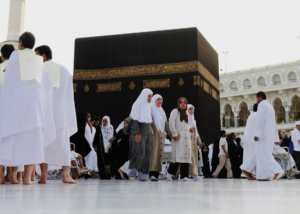Can you take a Rukhsah without necessity? Someone objected to your previous answer, saying you did not include this detail.
Quran
Hadith
Islamic Text
It is permitted to take a Rukhsah (dispensation) from another Madhab without necessity. The objection was shown to me and my detailed response is below.
فَسْئَلُوا أَهْلَ الذِّكْرِ إِنْ كُنْتُمْ لا تَعْلَمُونَ
Ask the people of remembrance if you do not know. (Surah al-Nahl, 43).
It is permitted to follow a valid opinion from a Madhab (school of thought) other than one’s own Madhab. This is called taking a Rukhsah (dispensation). When there is a valid Ikhtilaaf (difference of opinion) amongst authoritative scholars, then it is permitted to follow any one of them.
Taking a Rukhsah (dispensation) is permitted with two conditions. Firstly, the opinion one takes must be a strong opinion from one of the four recognised Madhabs of Ahl al-Sunnah. Secondly, it cannot lead to Talfeeq. Meaning one’s action must be sound according to one of the four Madhabs and you do not mix in such a manner that all madhabs would reject it. For an explanation please see the link below.
It is not conditional to taking a Rukhsah that one find himself in a situation of necessity. Although some Hanafi scholars did consider this to be a prerequisite, the sound opinion states that there is no such stipulation when taking a Rukhsah.
(قَوْلُهُ: عِنْدَ الضَّرُورَةِ)
ظَاهِرُهُ أَنَّهُ عِنْدَ عَدَمِهَا لَا يَجُوزُ، وَهُوَ أَحَدُ قَوْلَيْنِ. وَالْمُخْتَارُ جَوَازُهُ مُطْلَقًا وَلَوْ بَعْدَ الْوُقُوعِ كَمَا قَدَّمْنَاهُ فِي الْخُطْبَةِ ط. وَأَيْضًا عِنْدَ الضَّرُورَةِ لَا حَاجَةَ إلَى التَّقْلِيدِ كَمَا قَالَ بَعْضُهُمْ. (رد المحتار على الدر المختار)
His saying, at the time of necessity, ostensibly it (taking a Rukhsah) is not permitted when there is no necessity (Daroorah). That is one of two opinions. However, the selected opinion is that it is unconditionally permitted (whether there is a necessity or not). It is even permitted after the event, as has been mentioned (Tahtawi). (Consider) also that in a situation of necessity (Daroorah) there would be no need to follow (another Madhab), as was stated by some of them (the scholars). (Imam Ibn Abideen, Radd al-Muhtaar).
In the Nass above, Imam Ibn Abideen was explicit regarding the fact that Daroorah (necessity) is not a prerequisite to taking a Rukhsah (dispensation). Rather, it is permitted even when there is no Daroorah. He further explained that Daroorah would lead to greater leniency within one’s own Madhab, and thus one would not need to take a Rukhsah. So, stipulating Daroorah for a Rukhsah is counterintuitive.
وَالْغَالِبُ أَنَّ مِثْلَ هَذِهِ إلْزَامَاتٌ مِنْهُمْ لِكَفِّ النَّاسِ عَنْ تَتَبُّعِ الرُّخَصِ وَإِلَّا أَخَذَ الْعَامِّيُّ فِي كُلِّ مَسْأَلَةٍ بِقَوْلِ مُجْتَهِدٍ قَوْلُهُ أَخَفُّ عَلَيْهِ. وَأَنَا لَا أَدْرِي مَا يَمْنَعُ هَذَا مِنْ النَّقْلِ أَوْ الْعَقْلِ وَكَوْنُ الْإِنْسَانِ يَتَّبِعُ مَا هُوَ أَخَفُّ عَلَى نَفْسِهِ مِنْ قَوْلِ مُجْتَهِدٍ مُسَوَّغٌ لَهُ الِاجْتِهَادُ مَا عَلِمْت مِنْ الشَّرْعِ ذَمَّهُ عَلَيْهِ، وَكَانَ – صَلَّى اللَّهُ عَلَيْهِ وَسَلَّمَ – يُحِبُّ مَا خَفَّفَ عَنْ أُمَّتِهِ، وَاَللَّهُ سُبْحَانَهُ أَعْلَمُ بِالصَّوَابِ. (فتح القدير)
It is probable that conditions like these (for taking a Rukhsah) were mentioned to prevent people from looking for dispensations (Rukhas). Since it is permitted for a lay person to follow the opinion that is easiest for him, provided it is the opinion of a Mujtahid scholar.
I do not know of anything that prevents a person from taking Rukhsah regularly neither from text (Quran and Hadith) nor Aql (rationality). Rather a person consistently following what is easy for him by taking from a qualified Mujtahid has no blame in Shari’ah. The Prophet ﷺ used to love things that made it easier for his Ummah. And Allah (Most High) knows best. (Imam Ibn Humaam, Fath al-Qadeer).
We see above that Imam Ibn Humaam went even further and supported the concept of Tatabu al-Rukhas, which is to regularly seek out dispensations. There is no stipulation of Daroorah being a requisite. This was repeated by other leading Hanafi scholars. Therefore, it is incorrect to say that the Hanafi Madhab only permits Rukhsah if there is a Daroorah (necessity). However, a person with limited knowledge should avoid Tatabu al-Rukhas since he may fall into Talfeeq.
ثُمَّ لَعَلَّهُ مَحْمُولٌ عَلَى نَحْوِ مَا يَجْتَمِعُ لَهُ مِنْ ذَلِكَ مَا لَمْ يَقُلْ بِمَجْمُوعِهِ مُجْتَهِدٌ كَمَا أَشَارَ إلَيْهِ الْمُصَنِّفُ اهـ. وَسَيَذْكُرُ الْمُؤَلِّفُ عَنْ الشَّارِحِ أَنَّ فِي فِسْقِهِ وَجْهَيْنِ أَوْجَهُهُمَا عَدَمُهُ، وَاَللَّهُ سُبْحَانَهُ أَعْلَمُ. (منحة الخالق).
It may be that it (the opinion that taking a Rukhsah is not permitted without necessity) is in a context where one is engaged in an action that all Mujtahid (scholars) disagree with (Talfeeq). As the author alluded to. The author will mention from the commentator that there are two opinions regarding his (a person who takes a Rukhsah) sinfulness, and the sounder opinion is that it is not sinful. And Allah Most High knows best. (Imam Ibn Abideen, Minhatu al-Khaliq).
وَأَمَّا لَوْ صَلَّى يَوْمًا عَلَى مَذْهَبٍ وَأَرَادَ أَنْ يُصَلِّيَ يَوْمًا آخَرَ عَلَى غَيْرِهِ فَلَا يُمْنَعُ مِنْهُ. (رد المحتار على الدر المختار)
If a person were to pray according to a Madhab one day and wanted to pray according to another Madhab on another day, then there is nothing preventing him from doing so. (Imam Ibn Abideen, Radd al-Muhtaar).
In the Nusoos above, Imam Ibn Abideen not only reiterates the position of the Madhab but also provides an explanation for those who said it is sinful to seek dispensations. He explained that the concern they had, may well have been falling into Talfeeq. Thus, they had no issue with taking the Rukhsah itself but opposed doing so without sufficient knowledge.
He further provides an example of taking a Rukhsah with no consideration given to Daroorah (necessity). Thus making it abundantly clear that the position of the Hanafi Madhab is the permissibility of taking a Rukhsah even if there is no necessity.
And Allah Most High Knows Best.
-Answered by Shaykh Noorud-deen Rashid (21.09.2022)
See also:
How to respect difference of opinion?
Is it permitted to take a Rukhsah (legal dispensation)?
See also (video):






